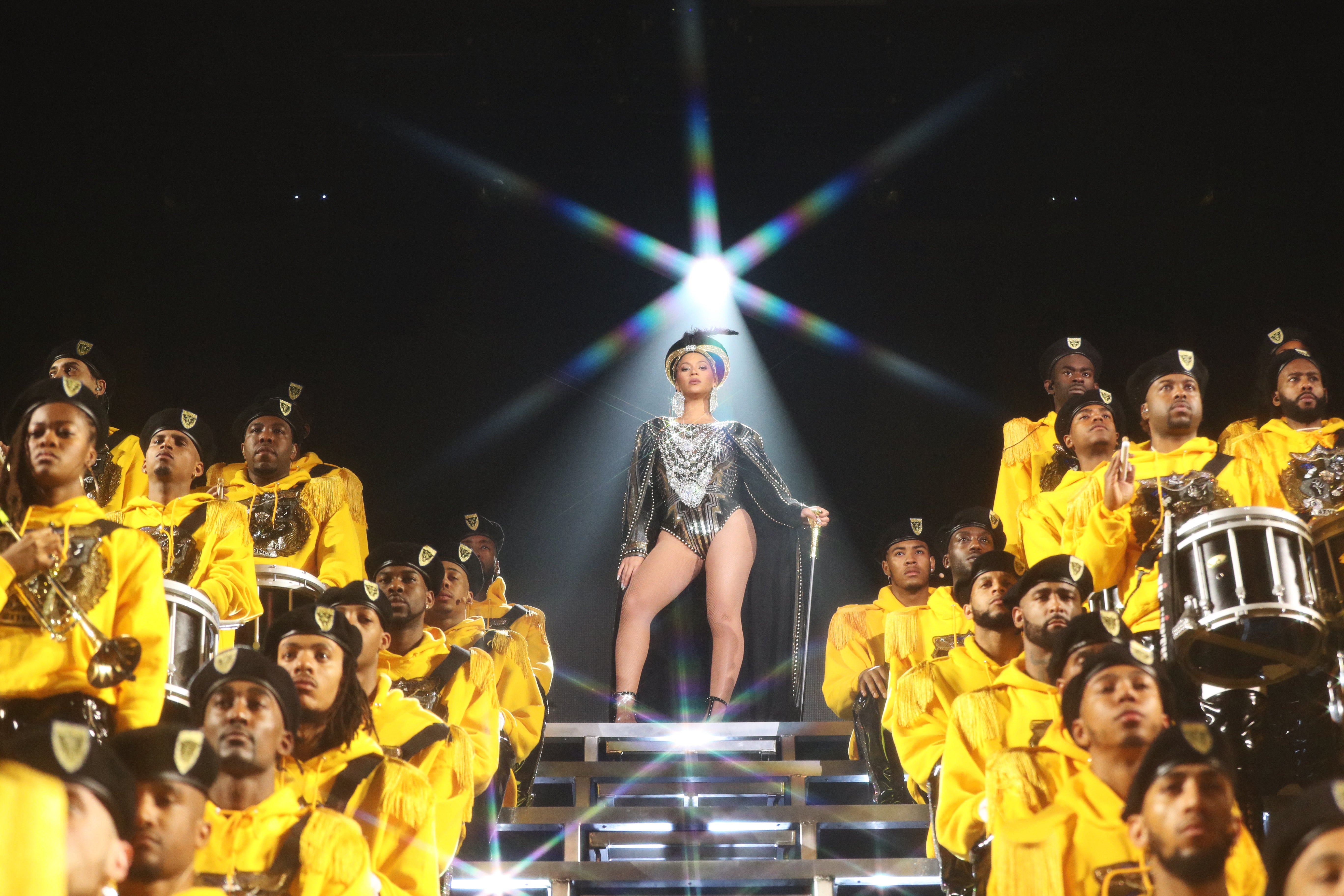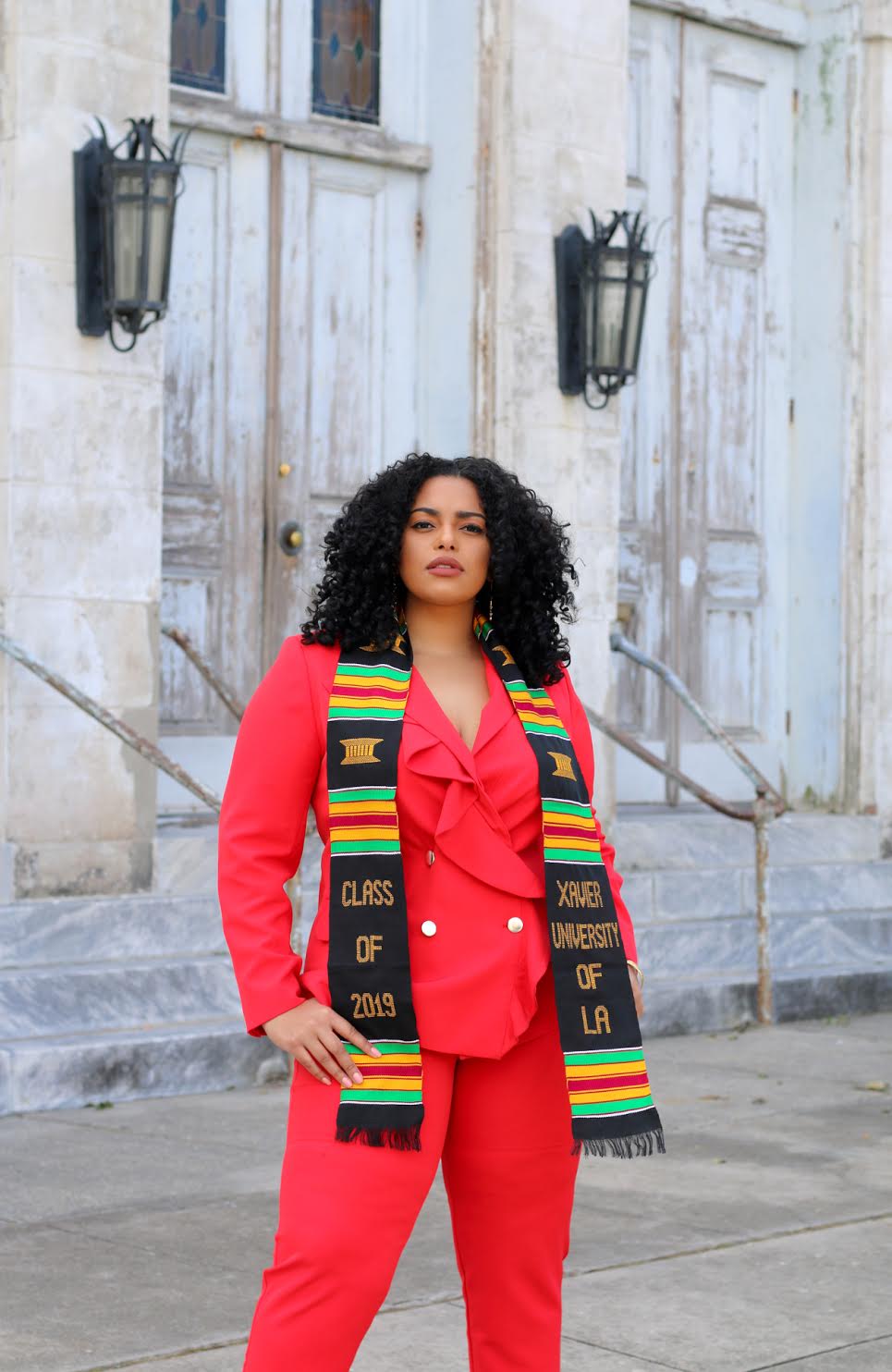To be Black is to have received a gift. It isn’t always easy, things aren’t always full of love as it should be, but the world should know that to be Black is its own unique and special gift. Beyoncé conveyed this message perfectly in her documentary Homecoming: A Film by Beyoncé. It’s been months and her film is still making an impact, especially on me.
Some might ask why this documentary still resonates. Bottom line… she got it right.
As a proud Historically Black University graduate, Beyoncé’s performance shows her love for HBCUs and Black culture. “When I decided to do Coachella, instead of me pulling out my flower crown, it was more important that I brought our culture to Coachella,” Beyoncé said in Homecoming.

Not only did she want educate America on some of what they were missing from the Black and HBCU experience, but she also placed it on a pedestal where it belongs. At the beginning of the film, Beyoncé is Queen of the stage. Striding down the extended lit platform with her Nefertiti inspired costume and surrounded by dancers with bright yellow costumes. Once the whistle blew, we knew she was going to take us somewhere and, in this case, she took us back home to our roots.
This documentary wasn’t just for the Beyhive, her goal was to educate society on the beauty of what HBCUs represent and she did that in 140 minutes of beautifully curated footage. HBCUs were designed to educate and create prosperity for African American students before the Civil Rights Act of 1964. Their mission remains the same and only grows more vital as we continue through our current political climate.
Since Beyoncé grew up in Houston and always visited Texas Southern University, she wasn’t new to this world. She brought the South and her knowledge of HBCUs to the California desert for two weekends.
From the chemistry and energy that was displayed on stage, it was clear Beyoncé created her own HBCU with her handpicked team. My HBCU, Xavier University of Louisiana, was a close-knit community and she made sure her team felt the same.

The performance was historic as well because she was the first Black woman to headline Coachella, but also because no one thought to use HBCU culture as inspiration and that’s why she’s the Queen. Beyoncé created a story that spoke on how amazing Black people can be with their box braids, melanin, and curves.
Homecoming became a conversation starter about race and its intersection with music. The selection of songs to intertwine with her hits like “Crazy in Love” to “Diva” represented HBCU tradition. To see the crowd swag surfing to backing it up to Juvenile’s “Back Dat Azz Up,” it was like another tailgate or party in New Orleans. Then, towards the end of the documentary, she closes out with her cover of the Frankie Beverly and Maze hit, “Before I Let Go.” The song is a staple within the Black community, played at cookouts, reunions or any social gathering because the groovy melody gets everyone on their feet to do the electric slide, especially in the Crescent City. For this song, Beyoncé continued with the band infusion but gave New Orleanians a gift with the added bonus of bounce hometown producer DJ Jubilee.
It’s clear that Beyoncé is proud of her Louisiana roots. In New Orleans, marching bands and brass bands infuse football games and Mardi Gras. It’s the music that makes New Orleans and more importantly HBCUs great. The documentary even features two very well known marching bands, Southern University’s The Human JukeBox and Grambling State University’s Tiger Marching Band.
The inspiration for her two week set, grew from her attending the Bayou Classic for their half time show, the Battle of the Bands. In a 46 year tradition, both Southern University and Grambling State University have faced off in competition for who has the best marching band in the land.
With Beyoncé creating her own drumline called the “Bzzzz” and her own Greek organization with the letters B (Beta) and K (Kappa), she gave audiences the full experience of what it means to pledge at an HBCU. Black sororities and fraternities date back to 1906 and play a huge part in establishing HBCU culture, which consists of community service, friendship and service. These Greek letter organizations were founded out of necessity, as African Americans were denied education or lacked the funds, so they created their own family—and the legacy continues.
Beyoncé’s dedication to educate society about HBCUs didn’t stop with the documentary. Through her BeyGood foundation, she gave $25,000 to eight students who attended an HBCU and I was one of the recipients. She showed that her Coachella moment wasn’t about her, but instead it was a way for America to feel uplifted knowing that Black culture is omnipresent and beautiful. This film gave society an opportunity to see that we are special, we are a gift and we bring a style that can’t be stopped.
Allana J. Barefield is an Xavier University grad and the 2019 National Association of Black Journalist’s Student Journalist of the Year.

